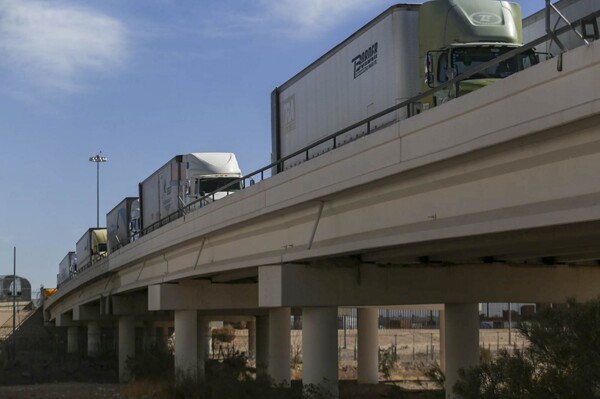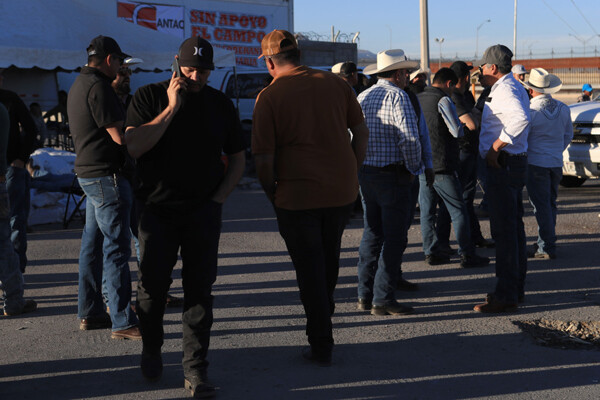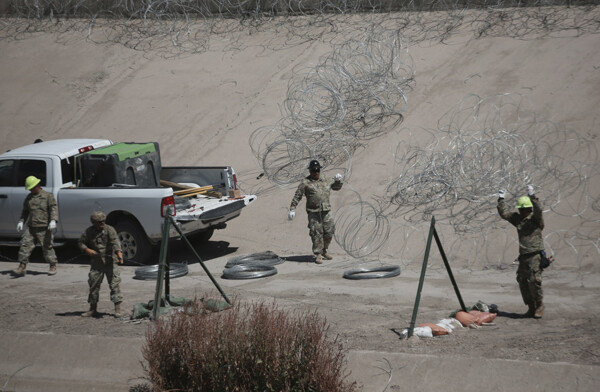
The United States needs Mexico to continue manufacturing. Some workers wonder how much longer they will have jobs, while business leaders say uncertainty has already led many investors to start tightening their belts.
"It's a conflict between governments and we are the most affected," said Carlos Ponce, a 58-year-old truck driver leaning on his vehicle at the customs border crossing between Ciudad Juárez and El Paso, Texas. "Tomorrow, who knows?". Ponce, who was driving a truck full of automotive shock absorbers, mentioned that he has been transporting goods across the border for the last 35 years, just as his father did before him.
Sotelo reported that last year saw a 7 percent drop in business and expects that to continue until tariff threats are resolved. A collective of maquiladoras in the city states that at least three factories have stopped production. "Every time we hear these speeches from these new political leaders, it puts the border on edge," said Salayandía.
Products made at the border go worldwide. An American company stated that it might have to move part of its manufacturing from the city to the United States, but at a very high cost.
Antonio Ruiz, compliance officer at Tecma, an American firm that helps foreign companies set up along the border, said his was among several companies that held emergency meetings over the weekend, as economic forecasters warned that tariffs could push Mexico into recession. "It's very hard to be prepared for something that has never happened," added Ruiz.
He and other business leaders report that over the last year they have seen investment in Ciudad Juárez decline due to political uncertainty, as investors hesitate to funnel their money into companies that could collapse overnight in Washington.
While Trump's election has been the main driver of this uncertainty, the elections in June in Mexico and a controversial judicial reform carried out by Mexico's ruling party have added to it. But they are not seeing it that way. This week, both workers and business leaders breathed a sigh of relief when President Claudia Sheinbaum announced that she had negotiated with Trump to delay tariffs for a month.
"Now, we're buying time," added Salayandía. Workers here assemble everything: from auto parts to computer panels or T-shirts printed with the American flag, logos of popular soccer teams in the United States, and slogans like "Proud to be a federal employee." The parts may cross the border several times before the final product is sold to American consumers.
The agreement was replaced by a similar pact, the United States-Mexico-Canada Agreement (USMCA), negotiated among the three countries during Trump's first term. Today, neon signs with the dollar-peso exchange rate flash throughout the city, a reminder of the close ties that bind both sides of the border. "Everything that happens around the United States with its economic policy, with its social policy, with its... war policy and so on, all of that affects us directly because the companies here in Mexico depend on what they sell in the United States," said Thor Salayandía, director of his family's auto parts manufacturing plant in Ciudad Juárez.
"And why the border? Because it is a global thermometer. In Mexico, they say it could also cause an increase in violence in border areas by pushing the unemployed into the hands of drug cartels, as well as an increase in Mexican migration to the United States. Manuel Sotelo, a leader of the National Chamber of Cargo Transportation (CANACAR) in Mexico, who owns a fleet of trucks that cross the border daily, sees tariff threats more as a move of political power than a future economic reality.
"The two countries would enter into a... let’s suppose he did impose the 25 percent tariff. As soon as the sun shines over the kilometers of the border wall dividing the United States and Mexico, the engines of cargo trucks filled with parts for automobiles and computers roar alongside the border bridges and sleepy-eyed workers enter the factories to assemble a multitude of products destined for the U.S. market.
For more than half a century, this daily rhythm has helped fuel the heartbeat of a transnational machine that generated more than 800 billion dollars in trade between the United States and Mexico just in 2024. However, since last year, the 25 percent tariffs that President Donald Trump threatened against Mexico and Canada have plunged manufacturing centers along Mexico's northern border into limbo, a state that persists despite a one-month extension that Trump granted on Monday.
The tariffs would paralyze the Mexican border economy that relies on factories producing products for the United States—auto parts and components, medical supplies, components for computers, and a wide variety of electronic products—and would likely push the country into recession, economic analysts have warned. Now, it is unclear how much longer that will continue.
Manufacturing in export-oriented assembly plants, known as "maquiladoras," is the heart of Ciudad Juárez's economy, where 97 percent of its products are destined for the United States, according to figures from Mexico’s Ministry of Economy. The factories were born in the 1960s in an attempt to boost economic development in northern Mexico and lower prices for American consumers.
"This economic interdependence makes it hard for many to imagine a future without it. The maquiladora program took off after the signing of the North American Free Trade Agreement (NAFTA) in 1994. "No matter how much one wants to prepare for this, I think the best you can do is just prepare to know how to cope with it in the short term."
Salayandía and economists warn that any type of tax could trigger a cascade of unemployment and a rise in prices on both sides of the border. "What are they going to do at the Super Bowl without avocados?" pointed out Sotelo, sitting in front of a desk covered with local newspapers featuring eye-catching headlines about tariffs and with a head doll of Trump placed behind him. Sotelo acknowledges that discussions about tariffs have already caused some damage.














